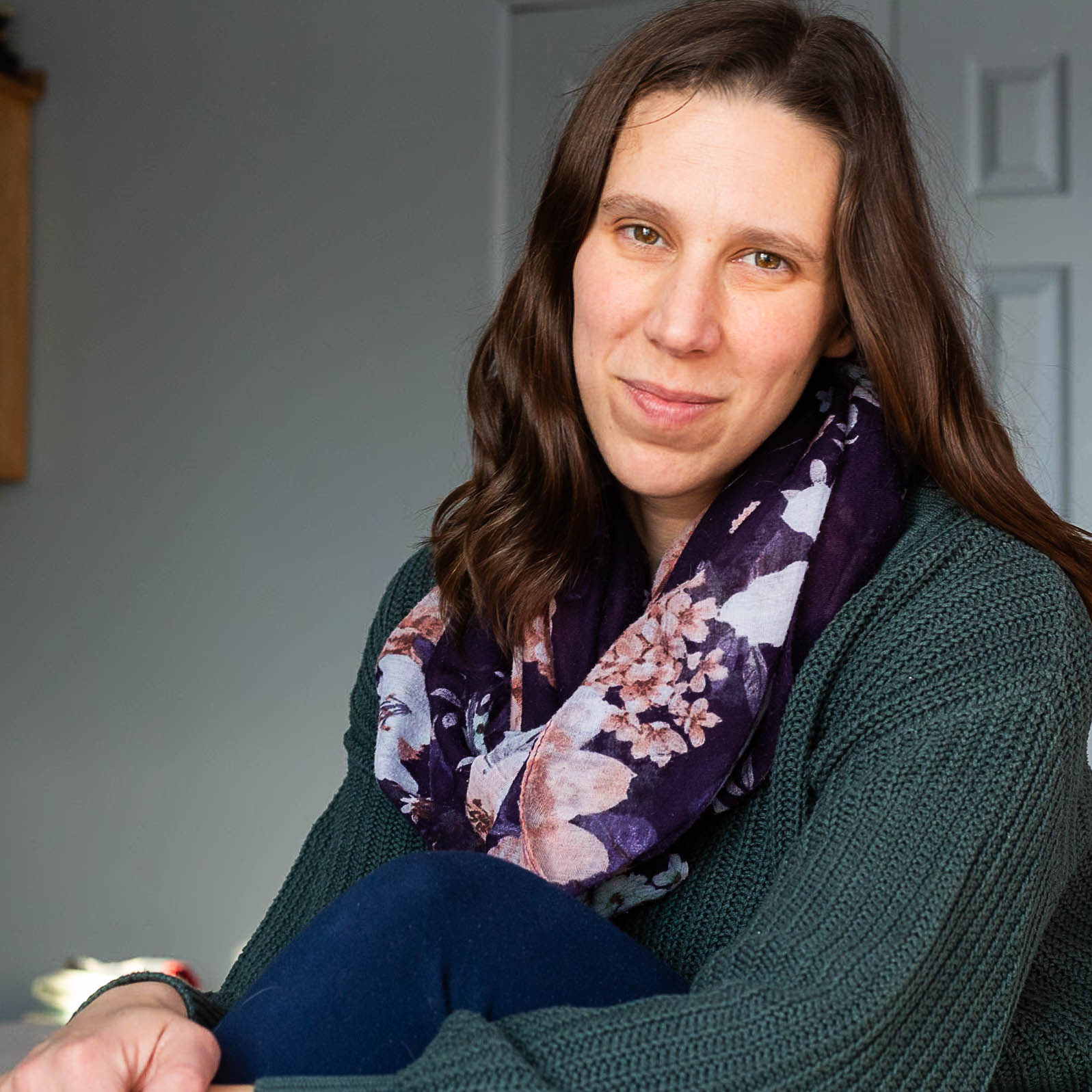Trust Yourself
Support group for parents of emotionally intense children
- Do you sometimes feel overwhelmed when faced with your child's intense emotions?
- Do you question your parenting decisions over and over again?
- Do you feel like you are failing and not being a “good” parent?
Find your parental confidence
The “Trust Yourself” program has been specially designed for you, parents of emotionally intense children. Each month, refocus on your priorities to regain control over your family reality...chaotic to say the least. Join us to:
- Clarify your priorities to reduce the load
- Share your experience in a safe, judgment-free space
- Ask your questions and receive personalized support
- Start listening to your parental intuition again, often silenced by judgment and stress
How does the group work?
Monthly 60-minute meetings, one part journaling, two parts discussion and support
Journaling exercises: We will begin with questions to help you clarify your priorities and strengthen your parental confidence. (This part will be recorded and available for replay)
Exchange and support: Next, exchange part where you can share with other parents who are going through an experience similar to yours and ask your questions for support from me and the other participants. (This part will not be available for rebroadcast)
Pay what you can: In the interest of universal access, you can participate for free or choose to contribute financially to maintaining the service based on your ability to pay.
In the guide you'll get

Practical details
Duration: 60 minutes (with possible distraction by children, mine or yours, it's 100% ok, even if they are in crisis)
Format: Online via Zoom (link will be emailed after registration)
Dates: Every 3rd Monday of the month
Price: Depending on your ability to pay
Registration: Mandatory for each session to know how many participants we will have

"
In the live class, Anouk was so involved and responsive with all the students on board. She gave so freely of herself. But she also does it in the course material and shares her knowledge and tips without holding back so that everyone wins.
K. L.

"
Anouk was a very understanding guide. She created a safe space to share our thoughts, feelings and questions. Her presence was very calming. Everyone was allowed to participate in their own way/pace. No guilt, no pressure. The exact opposite of what a normal parenting day looks like
Y. N.

Hosted by Anouk Brière-Godbout
I am a mother of 3 wonderful and emotionally intense children, I have a master's degree in social work and I have been supporting parents for over 17 years (and I have been a mother for just as long!)
My priority is to help you meet the specific needs of your emotionally intense child and your needs as well. I believe real change happens when both are supported together, in a non-judgmental space.
My goal is to help you develop your parental confidence in order to reduce conflicts and increase family complicity.
I do not offer universal solutions, but an experience adaptable to your reality.
But wait, what's an emotionally intense child?
An emotionally intense child feels deeply and reacts more intensely then most kids the same age to many kind of situation.
They can also be unpredictable in the way that they sometimes collaborate perfectly in a setting and absolutely not the next time in the same setting.
The most important thing to remember is that they don't do it on purpose, they are not able to do otherwise on their own and need support.
They all have their particularities but I see them as 3 different types:
- Lion
- Hedgehog
- Sloth

The Lion
The lion child is always on the move, loud most of the time, really curious and inquisitive and don’t really care about social expectations or is just not able to control themselves to behave in that expected way, no matter how often you repeat yourself or how hard they try.
It's a child who's externalized in their reactions everywhere and acts out at home as much as everywhere else.
You might get daily call from school, they probably have some service in school settings and you're most likely judged for not being able to control them.

The Hedgehog
The hedgehog child looks very sweet, calm and in control out of the house but will explode once at home and with people they are closer and more comfortable with. They are generally really sensitive and creative. They might be more whinny and cry more then the Lion, but can also be very intense in their reactions.
It's a child that is internalized in their reactions out of the house, but externalized at home so others don't see it and most of the time don't understand what you mean and don't trust you when you're sharing your experience, you're probably judged (and might judge yourself) like you are the problem since it's all happening in your house/with you.
For that reason they probably don't get access to any support in school settings even if they could benefit from some.

The Sloth
The Sloth is a child who's sweet, calm, looks in control, is often alone, helpful to adults, don't talk loudly or run around and is generally really careful. They are really reserved and might be seen as slow, lazy or shy. When they react it's more in subtle whining or crying, you might tel them to speak up often.
It's a child who's Internalized in their reactions everywhere, which means they often go under the radar even for parents, so I'm not even really expecting their parents to read this 😉, so if you are, congrats for being so in tune.
Even if they don't look like it, they are still struggling inside and things might get harder as they grow older and there's more demand and more stress in their life.
Do any of that resonates? This private audio series was designed with parents of Lion kids in mind, as they are the one's that are the most challenging to go out the house with for obvious reasons.
But even if it's not as hard for you as the parents, applying some of the principals with the Hedgehog and Sloth kids will also be beneficial for them, especially the first 2 sections of the resource.
